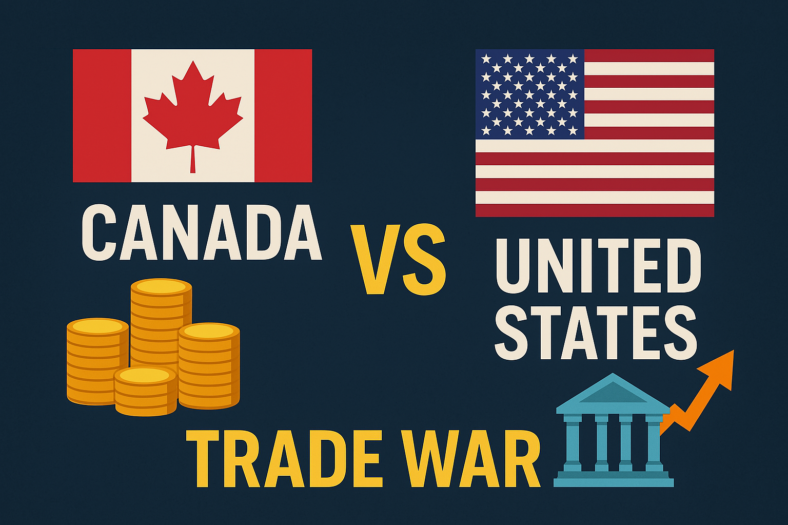Navigating the landscape of private financing in Canada can be both daunting and crucial, especially for individuals and businesses seeking optimal terms and rates. In a market saturated with options, finding the best private financing rates requires not only a keen understanding of the financial ecosystem but also insight into the nuances of lending institutions, regulations, and prevailing economic conditions.
In this comprehensive guide, we delve deep into the intricacies of private financing rates in Canada, offering invaluable insights and practical advice for those seeking to secure financing tailored to their specific needs and circumstances. Whether you’re an entrepreneur looking to fund your next venture, a homeowner seeking to renovate or invest in property, or an individual in need of personal loans, understanding the dynamics of private financing rates is paramount to making informed decisions and optimizing your financial outcomes.
We’ll explore the factors that influence private financing rates, ranging from credit scores and collateral to market trends and lender policies. Additionally, we’ll provide a comparative analysis of prominent private financing institutions across Canada, highlighting their offerings, terms, and rates to empower you with the knowledge needed to choose the most advantageous option.
From deciphering the fine print of loan agreements to leveraging negotiation strategies for better rates, this guide equips you with the tools and information necessary to navigate the private financing landscape with confidence and savvy. Whether you’re a seasoned borrower or venturing into the realm of private financing for the first time, our aim is to demystify the process and empower you to secure the best possible rates for your financial goals.
Join us on this journey as we unravel the complexities of private financing rates in Canada, empowering you to make informed decisions and unlock the doors to your financial success.
Our Top Picks: Best Private Financing Rates
What is a private lender?
A private lender is an individual or an entity that provides loans or financial assistance to borrowers outside of traditional banking institutions such as banks or credit unions. Unlike banks, which typically have stringent lending criteria and regulatory requirements, private lenders often offer more flexible terms and may be willing to extend credit to borrowers who may not qualify for loans through traditional channels.
Private lenders can take various forms, including:
Individual Investors: These are individuals who have capital to invest and are willing to lend money to borrowers in exchange for interest payments.
Private Companies: Private lending companies or firms specialize in providing loans to individuals, businesses, or real estate investors. These companies may focus on specific types of loans, such as personal loans, business loans, or real estate financing.
Peer-to-Peer (P2P) Lending Platforms: These platforms connect borrowers directly with individual lenders through online marketplaces, bypassing traditional financial institutions. P2P lending allows borrowers to access funds from multiple investors, often resulting in competitive rates.
Hard Money Lenders: Hard money lenders typically provide short-term loans secured by collateral, such as real estate. They are known for their quick approval process and may be willing to lend to borrowers with poor credit or unconventional financing needs.
Private lenders offer various benefits, including faster approval times, less stringent credit requirements, and greater flexibility in loan terms. However, borrowers should be aware that private loans often come with higher interest rates and fees compared to traditional bank loans. It’s essential for borrowers to carefully review the terms and conditions of private loans and assess their ability to repay before entering into any agreement with a private lender.
How to find the best private financing rates in Canada
Finding the best private financing rates in Canada requires thorough research and strategic approach. Here’s a detailed guide on how to navigate the process effectively:
Understand Your Financing Needs: Start by clearly defining your financing needs. Determine how much funding you require, the purpose of the loan (e.g., business expansion, real estate investment, personal expenses), and your preferred repayment terms.
Assess Your Financial Situation: Evaluate your creditworthiness and financial standing. Private lenders may consider factors such as credit score, income, assets, and debt-to-income ratio when determining loan eligibility and interest rates. Improving your credit score and addressing any outstanding debts can enhance your chances of securing favorable financing terms.
Research Private Lenders: Explore the landscape of private lenders in Canada. Look for reputable lending institutions, including private lending companies, peer-to-peer lending platforms, and individual investors. Consider factors such as lender reputation, experience, loan offerings, and customer reviews.
Compare Loan Terms and Rates: Gather information on loan terms, interest rates, fees, and repayment options from multiple lenders. Use online resources, comparison websites, and direct inquiries to obtain quotes and understand the cost of borrowing from each lender. Pay attention to factors such as fixed versus variable rates, loan duration, and any hidden charges.
Negotiate with Lenders: Don’t hesitate to negotiate with potential lenders to secure better terms. Presenting a strong financial profile, demonstrating your ability to repay the loan, and highlighting your commitment to the partnership can strengthen your position during negotiations. Be prepared to discuss interest rates, fees, repayment schedules, and any collateral or guarantees you can offer.
Consider Collateral and Guarantees: Some private lenders may require collateral or guarantees to secure the loan, especially for larger amounts or riskier ventures. Evaluate your assets and consider offering collateral, such as real estate, vehicles, or investment portfolios, to lower the lender’s risk and potentially qualify for lower interest rates.
Seek Professional Advice: If navigating the private financing market seems overwhelming, consider seeking advice from financial advisors, mortgage brokers, or legal professionals specializing in private lending. They can offer expert guidance, help you understand complex loan terms, and assist in negotiating favorable deals.
Review and Compare Offers Carefully: Once you’ve received loan offers from multiple lenders, carefully review and compare them side by side. Pay attention to the total cost of borrowing, including interest charges, fees, and any additional terms or conditions. Choose the offer that best aligns with your financial goals, affordability, and risk tolerance.
Read the Fine Print: Before committing to a loan agreement, thoroughly review the terms and conditions outlined in the contract. Pay close attention to clauses related to interest rates, repayment terms, prepayment penalties, and default provisions. Seek clarification on any ambiguous language and ensure you fully understand your rights and obligations as a borrower.
Maintain Communication with Your Lender: Establish open communication channels with your chosen lender throughout the borrowing process. Clarify any questions or concerns you may have, stay informed about your loan status, and proactively address any issues that arise during the repayment period.
By following these steps and conducting thorough due diligence, you can increase your chances of finding the best private financing rates in Canada that suit your needs and financial objectives.
FAQs about the best private financing rates in Canada
Private financing involves obtaining loans or financial assistance from non-bank sources such as private lenders, individuals, or alternative lending institutions. Unlike traditional bank loans, private financing often offers more flexible terms, faster approval times, and may cater to borrowers with less-than-perfect credit.
Several factors can influence private financing rates, including the borrower’s creditworthiness, income stability, loan amount, loan-to-value ratio (LTV), prevailing market conditions, and the lender’s risk assessment criteria. Generally, borrowers with stronger credit profiles and lower perceived risk may qualify for lower interest rates.
To enhance your eligibility for favorable financing rates, focus on improving your credit score, reducing outstanding debts, maintaining stable income, and presenting a strong financial profile to potential lenders. Additionally, offering collateral or guarantees may lower the lender’s risk and qualify you for better rates.
Private lenders can be found through various channels, including online lending platforms, private lending companies, mortgage brokers, and networking within your professional or industry circles. Conduct thorough research, compare loan offerings from multiple lenders, and consider seeking recommendations from trusted sources.
Private financing in Canada offers a wide range of loan options, including personal loans, business loans, real estate financing (such as mortgages and construction loans), vehicle loans, and debt consolidation loans. The availability of loan types may vary depending on the lender’s specialization and lending criteria.
While private financing can provide access to funding when traditional bank loans are unavailable or impractical, it also carries certain risks. These may include higher interest rates, shorter repayment terms, less regulatory oversight, and the potential for predatory lending practices. Borrowers should carefully assess the terms and risks associated with private loans before proceeding.
Yes, borrowers can often negotiate terms, including interest rates, loan amounts, repayment schedules, and fees, with private lenders. Presenting a strong financial profile, comparing offers from multiple lenders, and demonstrating your commitment to responsible borrowing can strengthen your position during negotiations.
Before finalizing a private financing agreement, carefully review the terms and conditions outlined in the contract. Pay attention to interest rates, fees, repayment terms, prepayment penalties, default provisions, and any clauses related to collateral or guarantees. Seek clarification on any ambiguous terms and ensure you understand your rights and obligations as a borrower.
In conclusion, navigating the realm of private financing rates in Canada requires diligence, strategic planning, and a thorough understanding of the lending landscape. By following the steps outlined in this guide and considering the factors that influence private financing rates, borrowers can empower themselves to secure the best possible terms for their financial needs.
From assessing your financial situation and researching reputable lenders to negotiating terms and reviewing loan agreements, each step of the process plays a crucial role in achieving favorable financing rates. Whether you’re a business owner seeking capital for expansion, a homeowner looking to renovate, or an individual in need of personal loans, taking the time to compare offers, understand loan terms, and communicate effectively with lenders can make a significant difference in your borrowing experience.
While private financing offers flexibility and accessibility, it’s essential for borrowers to approach it with caution and awareness of potential risks. By conducting due diligence, seeking professional advice when needed, and carefully evaluating loan agreements, borrowers can mitigate risks and make informed decisions that align with their financial goals.
Ultimately, finding the best private financing rates in Canada is not just about securing funds—it’s about forging partnerships with lenders who understand your needs and are committed to your financial success. By leveraging the insights and strategies provided in this guide, borrowers can navigate the private financing landscape with confidence and unlock opportunities for growth, investment, and prosperity.
Thank you for joining us on this journey to uncover the nuances of private financing rates in Canada. We hope this guide has equipped you with the knowledge and tools needed to make informed decisions and achieve your financial objectives. Here’s to your success in securing the best private financing rates tailored to your unique needs and aspirations.




















